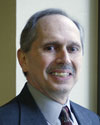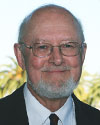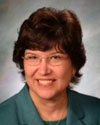LiveText will sponsor a year-long informational webinar series, each
session presented by national experts in higher education who will share
their insights and experiences. We encourage you to register for as many
of the complimentary webinars as you like, and to visit www.livetext.com to check for additional webinar
offerings throughout the year.
Assessment Made Clear and Simple: Practical Strategies
Wednesday,
February 15th from 1:00 to 2:00pm CST
Dr. Kevin Beach
Outcomes Assessment Coordinator at the University of Tampa
Dr. Beach will discuss the challenges
associated with outcomes and course-embedded assessment when multiple
needs are involved, such as programmatic, general education, and regional
as well as discipline-specific accreditors. We will focus on the need for
building a 'coalition of the willing' as new assessment strategies are
implemented across a university.
What if the Quality of Learning Really Mattered?
Wednesday,
March 14, 2012 from 1:00pm to 2:00pm CST
Dr. Terry Rhodes
Vice President for the Office of Quality, Curriculum and Assessment
at the Association of American Colleges and Universities
Dr. Rhodes will examine how the development
of learning outcomes, rubrics, e-Portfolios, and assessment are creating
an environment in which faculty expertise can be front and center in the
higher education debate on assessment. We will briefly look at the
Essential Learning Outcomes, walk through how some institutions are using
the AAC&U's VALUE rubrics to assess levels of student learning, look
at how the assessment results are being reported to stakeholders, and how
results of the assessments are being used to improve.
The Transformative Nature of Assessing Student
Evidence
in Electronic Portfolios
Wednesday,
April 4th from 1:00 to 2:00pm CST
Dr. Trent Batson
Executive Director for the Association for Authentic, Experiential
and Evidence-Based Learning (AAEEBL)
Dr. Batson will explore creating a learning
design where assessing student evidence in electronic portfolios is the
primary assessment process, not testing. Such assessment is much richer
and more valid than testing. We have said about teachers "you teach
as you test," but for students the phrase would be "you learn
as you are assessed." In this webinar, we will discuss ways to understand
these deep changes in higher education.
What Do Accreditors Want? Successful Strategies for
Meeting Regional Accreditation Requirements for Learning Assessment
Wednesday,
May 2nd from 1:00 to 2:00pm CST
Ms. Linda A. Suskie
Assessment and Accreditation Specialist
Ms. Suskie will discuss how the climate for
higher education is changing rapidly today, as well as regional
accreditors' standards and expectations for student learning assessment.
How can your institution demonstrate compliance with student learning
assessment standards? Ms. Suskie will present useful tips and strategies
based on her 35 years of experience in assessment, institutional
research, strategic planning, and quality management.
Please forward this invitation to any faculty or colleagues whom you
think would be interested. Space is limited so register for one or all
today!
Connect with
us!
|
















